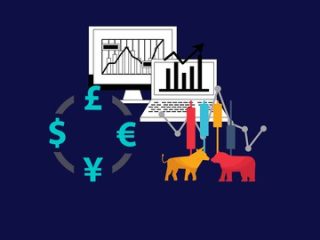Obtaining the services of a reliable broker should be the first thing you do on your journey to turning a profit trading futures. As a result of the use of leverage, investing in futures is a more alluring investment than trading in cash markets.
Trading in futures contracts for Canada is a low-risk way to generate income. Because they are traded in such massive amounts on a daily basis, futures are considered to be highly liquid. Because of this, quick execution of market orders is made possible. In addition, the prices of futures contracts do not significantly fluctuate even when they are getting close to maturity. As a consequence of this, it is feasible to close out a sizeable position without having a discernible effect on the price. Additionally, unlike traditional markets, futures markets are open outside of normal trading hours. Extended trading in stock index futures typically takes place over the course of the overnight hours, and certain markets are open around the clock.
In canada futures trading, your first investment is referred to as your initial margin. To open and terminate a position, you are obliged to pay this charge, the amount of which is normally between 3 and 10 percent of the total value of the contract. Your trading partner will lend you the remaining funds so that you can initiate the position. During this period, you are going to be expected to maintain a maintenance margin, also known as an additional quantity of dollars. In order to keep a trade open, you need to ensure that at least fifty percent of the initial margin remains in your trading account.
When trading individual stocks, it is highly recommended that you pay attention to the futures indexes that have a correlation to the companies in your portfolio. Individual traders on the stock market will frequently keep an Emini futures chart on their screens alongside their stocks. However, in order to locate the most profitable investment, an individual could have to trade hundreds of different equity pairings or currency combinations. When this happens, traders are forced to look for another stock to trade, as there is no volume in the market for that particular stock.
Both futures and options come with their own set of advantages. The most major benefit that options provide, in terms of cost savings, is huge cost savings. The trade of futures, on the other hand, does not have this limitation. Trading in futures is advantageous for a lot of different reasons. For example, it can assist you in lowering the overall costs associated with your portfolio. You need to keep this in mind before you make any investments because there is a significant amount of risk involved in making investments. Because of this, trading futures may seem like a more rewarding option; yet, like any other type of investment, it comes with its fair share of risks and expenses.
Futures contracts on stocks are a type of derivative contract that enable buyers and sellers to purchase a predetermined quantity of the asset that they are based on. Pricing for futures contracts is determined by the underlying asset, which is most frequently composed of commodities, bonds, or financial instruments. The price of a good or security can be locked in with the help of futures contracts, which also make it possible for businesses to engage in futures trading.

 Prorated Rent Ensures Fair Charges for Partial Month Stays
Prorated Rent Ensures Fair Charges for Partial Month Stays  Nang Delivery Sydney Provides Fast Drop-Offs Across the City
Nang Delivery Sydney Provides Fast Drop-Offs Across the City  A Prop Trading Firm Gives You Funded Access to Real Market Conditions
A Prop Trading Firm Gives You Funded Access to Real Market Conditions  StreamEast MLB broadcasts every pitch and homer in real time
StreamEast MLB broadcasts every pitch and homer in real time  High-Definition Overseas Soccer Broadcast for Clear Game Moments
High-Definition Overseas Soccer Broadcast for Clear Game Moments 





